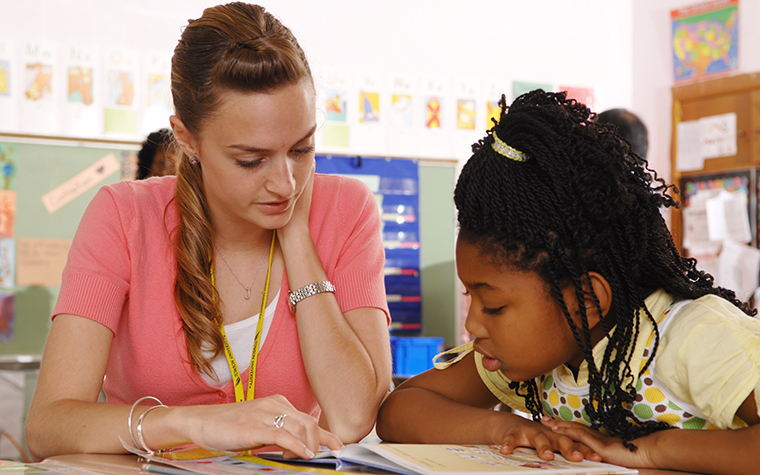Off-Campus Locations
The program is also offered through the Towson Learning Network (TLN) to employees of local school systems at various off-campus locations.
The M.Ed. in reading education provides you with advanced skills to enhance literacy for all learners. You’ll be prepared to coach classroom teachers, paraprofessionals and parents and advocate for successful learning environments.

As the premier teacher-training institution in Maryland, Towson University has a 150-year tradition of preparing classroom teachers, education specialists and school leaders.
The Master of Education in reading education program is designed to prepare reading teachers and reading specialists, primarily for PreK-12 education but also for community colleges, industry, adult education programs, commercial education centers and private practice.
The program will prepare you to:
The 36-unit program includes nine required courses and three electives, two of which must be in the area of literacy. A highlight of our program is the English Language Learner concentration that students may choose if they would like for their three electives:
*This sequence is designed to prepare students for the Praxis II ESOL exam. In Maryland, if you pass the ESOL Praxis, you become ESOL Certified. Learn more about the test by reviewing the Praxis Study Companion (PDF).
View admission and degree requirements and course descriptions for the M.Ed. in reading education in the Graduate Catalog.
Watch videos about the reading program and reading clinic.
The program includes a practicum at TU’s Reading Clinic where you’ll work one-on-one with children and their parents to incorporate technology into literacy programs.
